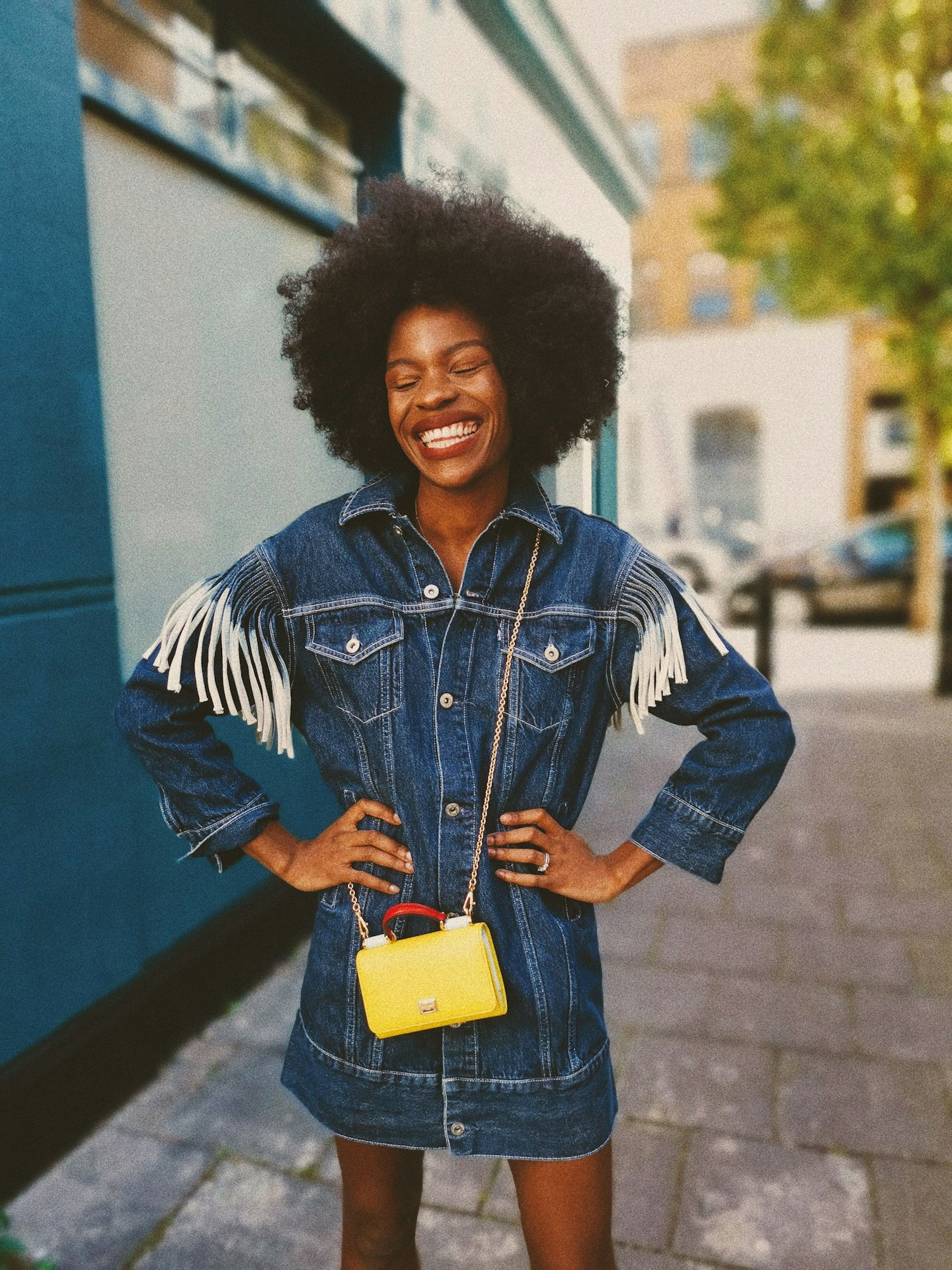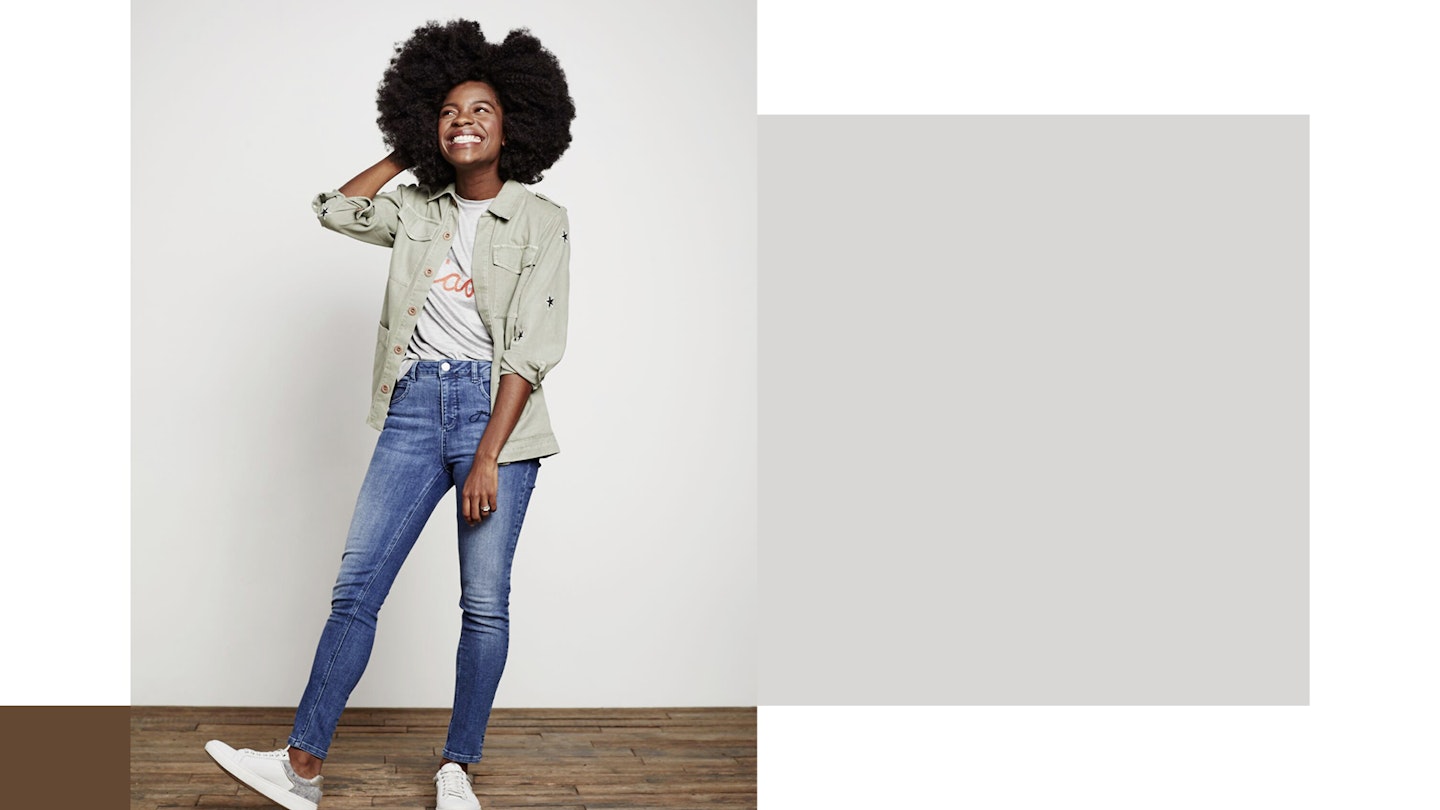Freddie Harrel started blogging back in 2013, and has since built up a humungous Instagram following (182K and counting), and raised a staggering $2 million via female-only investors for her start-up venture, RadSwan, a ‘conscious beauty brand built with, and for, the Global African Diaspora’.

Despite falling in love with her natural hair at the age of 21, Freddie spent her earlier years experimenting. ‘Hair was my strongest form of self-expression. When I was a kid, I’d get it braided a different way every month, then I hit my teenage years and started relaxing it. That’s when I played with straightening it and curling it. I used my hair to shape-shift, in the same way that I’d change up my lipstick or a pair of shoes.
Hair was my strongest form of self-expression
I went to private school and was one of only three black people there. I felt like an alien, and changing my hair became my magic trick. All the girls would come up to me amazed and ask how I did it. I got a little older and suddenly everything was about boys. I wanted long, blonde, straight hair, like the girls who seemed to get all the boys.’
Freddie’s early twenties saw her rediscover her natural hair. ‘I worked in banking, and wore weaves to fit in. Because my natural hair was hidden, I stopped having it relaxed. Gradually my natural hair grew out and I rediscovered its texture. Later I moved to London, where I felt comfortable experimenting with my natural afro hair. I’d been living in Paris prior to the move, and there’s this fashion ‘uniform’ there that people expect you to stick to.’
RadSwan: Behind The Name
‘I did the 10 Year Challenge on Instagram and wrote about how far I’ve come in the caption. I wrote: "I’ve blossomed into the raddest swan now so you can’t tell me nothing". All black women have been made to feel like an ugly duckling at some point. When you get past that, you don’t just become some average swan, you become a RadSwan.’
Disrupting The Market
Her on-and-off dalliance with wigs and weaves made Freddie aware of a gaping hole in the market. ‘To put things into context, black women spend $5 billion on the wet hair care market globally (hair masks, shampoo, conditioners) and $7 billion on dry hair care (wigs, hair extensions). That dry hair category is split into synthetic hair and human hair and, historically, there’s been a real divide between them. Synthetic hair options are considered cheap and poor quality, and human hair is viewed as the luxury buy. A full lace wig of virgin human hair has become the equivalent of a designer bag. Human hair is worth per pound more than gold, but it’s problematic. Quite often there are no ethics-focused regulations around sourcing this hair.
Human hair is worth per pound more than gold
I wanted to venture into the synthetic hair industry and provide a high-quality product that’s easy to use. The likes of Superdrug have got a lot better about providing for black women in-store when it comes to wet haircare but, if I wanted a good wig in London, I’d have to travel to small specialised locations in Brixton or Peckham, and you don’t get educated in how to work with what you buy. There’s this assumption that black women have these innate hair skills, and that’s not always the case. Hair is definitely part of our culture, and sisterhood. Hair rituals, like braiding, bring people together, but 80% of black women now learn about haircare via YouTube tutorials. I’m offering up a new look that takes five minutes to put on.’
RadSwan launches this year with a line of premium wigs and hair extensions. Join the waiting list here.
READ MORE:Here's How Nikki Wolff, Instagram's Glow Queen, Achieves Flawless Skin
READ MORE: Adele's Curls Are The Talk Of The Town And We're Getting To The Bottom Of Them
